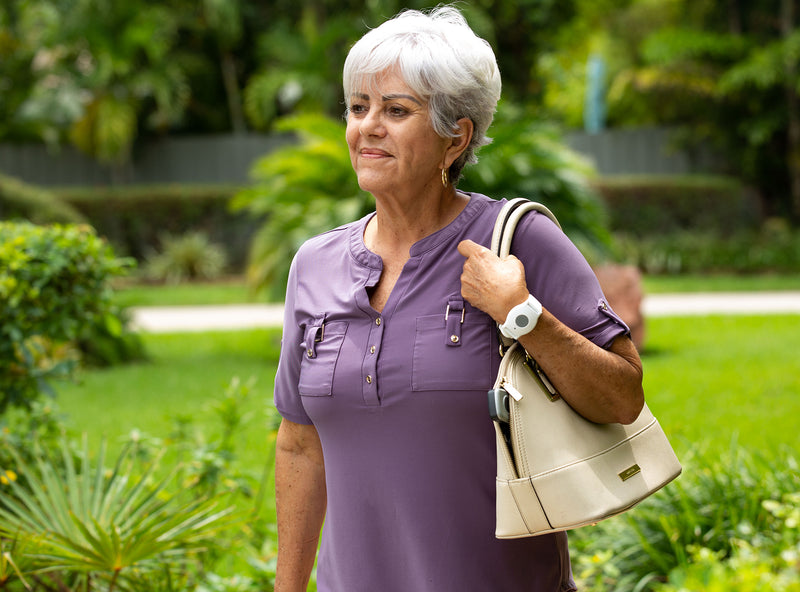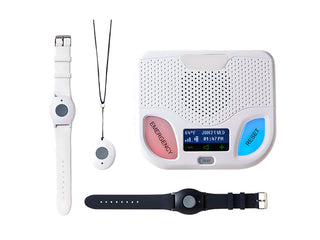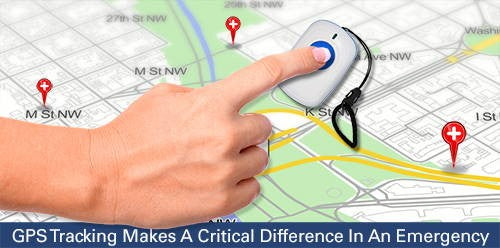Technology Simplified
Medical Alert Systems with GPS for Independent Living

As we age, our mobility and independence may become limited due to health issues or other factors. For many seniors, the fear of losing their independence can be a major concern. However, thanks to advancements in technology, there are medical alert systems that can help seniors maintain their independence while still providing them with the safety and security they need.
One type of medical alert system that is gaining popularity among seniors is the GPS-enabled system. This type of system uses Global Positioning System (GPS) technology to track a user's location and can provide additional features to enhance the user's safety and security.
GPS-enabled medical alert systems can be especially helpful for seniors who live alone or who are at a higher risk of falls or other medical emergencies. With a GPS-enabled system, the user can quickly and easily alert emergency services in case of an emergency, and emergency responders can locate the user's exact location quickly and easily.
GPS-enabled medical alert systems can provide seniors with the freedom and independence they desire while still ensuring that they have access to help when they need it. With the ability to track a user's location and provide immediate access to emergency services, these systems can be lifesavers in the event of an emergency.
When considering a GPS-enabled medical alert system, there are a few factors to keep in mind. First, it's important to choose a system that has reliable GPS tracking technology to ensure that emergency responders can quickly and easily locate the user's exact location. It's also important to choose a system with fall detection technology, as falls are a common cause of injury among seniors.
In addition to these key features, consider the system's battery life, range, and ease of use. Look for a system that is waterproof and durable, and that can be worn comfortably and discreetly.
It's also a good idea to read reviews and compare prices before making a purchase. Many medical alert systems require a monthly subscription fee, so it's important to choose a system that fits within your budget.
Overall, GPS-enabled medical alert systems are a great option for seniors who want to maintain their independence while still having access to help in the event of an emergency. With reliable GPS tracking and other important features like fall detection, these systems can provide peace of mind for both seniors and their loved ones.
One type of medical alert system that is gaining popularity among seniors is the GPS-enabled system. This type of system uses Global Positioning System (GPS) technology to track a user's location and can provide additional features to enhance the user's safety and security.
GPS-enabled medical alert systems can be especially helpful for seniors who live alone or who are at a higher risk of falls or other medical emergencies. With a GPS-enabled system, the user can quickly and easily alert emergency services in case of an emergency, and emergency responders can locate the user's exact location quickly and easily.
GPS-enabled medical alert systems can provide seniors with the freedom and independence they desire while still ensuring that they have access to help when they need it. With the ability to track a user's location and provide immediate access to emergency services, these systems can be lifesavers in the event of an emergency.
When considering a GPS-enabled medical alert system, there are a few factors to keep in mind. First, it's important to choose a system that has reliable GPS tracking technology to ensure that emergency responders can quickly and easily locate the user's exact location. It's also important to choose a system with fall detection technology, as falls are a common cause of injury among seniors.
In addition to these key features, consider the system's battery life, range, and ease of use. Look for a system that is waterproof and durable, and that can be worn comfortably and discreetly.
It's also a good idea to read reviews and compare prices before making a purchase. Many medical alert systems require a monthly subscription fee, so it's important to choose a system that fits within your budget.
Overall, GPS-enabled medical alert systems are a great option for seniors who want to maintain their independence while still having access to help in the event of an emergency. With reliable GPS tracking and other important features like fall detection, these systems can provide peace of mind for both seniors and their loved ones.






